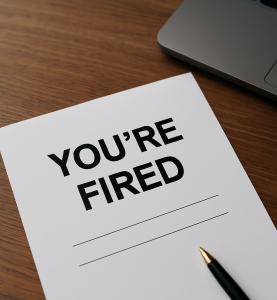Lawyer Monthly hears from Marjorie Mesidor and Darnisha Lewis-Bonilla at Phillips & Associates, who dissect the employability rights afforded to those with a criminal record, both in New York and the US more widely.
One in every three US adults has a criminal record. There are 2.3 million people in prison in the US, a 500% increase over the last four decades. 27% of ex-convicts in the US are unemployed. In addition, statistics show the disproportional impact the criminal justice system has on people of colour. The University of South Carolina put together a study with the data from a 16-year US Bureau of Labor Statistics survey to look at US crime statistics. The research showed that almost half of Black American males (49%) were arrested at least once before their 23rd birthday. In comparison, this number was 40% for white males and 44% for Hispanic males.
Even in the age of the Great Resignation, searching for a new job is not easy. The application process alone can cause an applicant significant frustration. Am I answering this question correctly? What is the employer asking me in this question? These are some of the common questions applicants might have to consider while completing an application. This is in addition to memorising employment dates for prior employers, carefully selecting professional references, all while making sure to answer the questions accurately.
This process is complicated even further when applicants are asked questions about their criminal history. First, applicants may not understand the information the employer is seeking. Second, they may not know what, if any, information the applicant is obligated to disclose. Third, once the applicant discloses the information, they run the risk of being denied the job opportunity. If an applicant is denied a job opportunity based on their criminal history, discrimination may be afoot. For this reason, it is imperative that applicants and employers alike understand the law and what is at stake.
One in every three US adults has a criminal record.
Before we discuss the laws designed to protect applicants from discrimination based on criminal history, it is important that we address some of the terminology frequently used to obtain information about one’s criminal history. By understanding the meaning of these terms, applicants can ensure that they are providing accurate information to employers. A failure to accurately report one’s criminal history could result in negative consequences not only during the application process, but for any potential legal claims of discrimination an applicant may have. For example, answering “yes” to a criminal conviction inquiry, when applicants receive an Adjournment in Contemplation of Dismissal (ACD), could cause them to miss out on a job simply based on a lack of understanding. As such, we will start by defining some common terms for applicants to know.
Definitions
What is an arrest?
An “arrest” occurs when a person is taken into custody of law enforcement based on probable cause with or without a warrant.[1] It is simply an accusation.
It is important to note an arrest is not a conviction. Moreover, an arrest does not necessarily lead to a conviction. Cases are disposed of in a myriad of ways. For example, a person may have been arrested and the charges were dismissed or resolved in a manner that did not include a conviction. It is important to remember this difference, as under most circumstances an employer cannot inquire about an arrest. So, an applicant should not erroneously report a conviction when they were merely arrested.
It is important to note an arrest is not a conviction.
What is an ACD pursuant to CPL 170.55 or CPL 170.56?
An Adjournment in Contemplation of Dismissal, pursuant to CPL §170.55, is a postponement of a case with no future date ordered, which typically results in the ultimate dismissal of the accusatory instrument in the furtherance of justice. If, however, an individual has contacts with the criminal justice system before the matter is dismissed, the case may be restored. If the case is not restored within six (6) months, then the case is dismissed. For certain family offences, the state has one (1) year to restore the case.[2]
An Adjournment in Contemplation of Dismissal (ACD) pursuant to CPL §170.56 specifically relates to marijuana-related offences and can only be applied if certain criteria are met. It is a postponement of a case with no future date ordered, which typically results in the ultimate dismissal of the accusatory instrument in the furtherance of justice. If, however, an individual has contacts with the criminal justice system before the matter is dismissed, the case may be restored. It is important to note that under this section, the case may remain open for up to one (1) year.[3] Both are considered negotiated results and can still have an impact on the application process.
What is a violation?
A “violation” is a non-criminal offence, other than a traffic infraction, for which a sentence to a term of imprisonment exceeding fifteen (15) days may not be imposed.[4]
What is a traffic infraction?
Traffic infractions are those rules, regulations or laws defined by Vehicle & Traffic Law that are not classified as a misdemeanor or felony. Understandably, this definition may be very perplexing. The vehicle and traffic codes can fall into three main categories: traffic infractions, misdemeanors or felonies. A traffic infraction is not a crime and the punishment imposed is not penal and it cannot be used to impact the individual’s credibility.[5]
What is a crime?[6]
A crime is a misdemeanour or a felony. This does not include a traffic infraction. For example, if an applicant once drove through a stop sign, was issued a ticket and found “guilty,” this does not constitute a criminal conviction.
What is a Youthful Offender Adjudication?
A youthful offender is an individual who is charged with a crime alleged to have been committed, when said individual is between ages 16 to 19.[7] A youthful offender adjudication is not a judgment of conviction for a crime or any other offence and does not bar an individual from holding public office or public employment or to receive any license granted by public authority. Except under limited circumstances, where required or permitted by statue or court authorisation, all records and papers related to this adjudication are confidential and may not be made available to any public or private agency.[8] Pursuant to Family Court Act §380.1, except where required by statute, an applicant need not disclose this adjudication.
What is a conviction?
A “conviction” is the entry of a plea of guilty or verdict of guilty upon an accusatory instrument other than a felony complaint, or to one or more counts of such instrument.[9]
What is a misdemeanour?
An offence, excluding a traffic infraction, for which a sentence of imprisonment for more than 15 days may be imposed; however, the term of imprisonment cannot exceed 1 year.[10]
What is a felony?
A felony is an offence for which someone may be sentenced to a term of imprisonment for more than 1 year.[11]
Understanding the differences between these terms can both help an applicant become more knowledgeable about their criminal history and enable them to answer questions related their past more accurately.
As an example, assume the applicant has confirmed they have a criminal history record. What next? Perhaps their criminal history includes felony and misdemeanour convictions, and they may feel discouraged. After all, bias exists and employers, wrongly or rightly, may judge an applicant based on their past.
First, it is important to note that the past does not determine a person’s future. Criminal convictions are more commonplace than one may realise. By examining some statistics, it is evident that many New Yorkers have a criminal conviction history; in 2020, adult arrests of individuals 18 or older within New York State totaled 255,592. Of those arrests, 101,369 were for felony arrests and 154,223 were for misdemeanour arrests.[12] Next, we examine criminal convictions in New York State. In 2020, 10,366 adult arrests resulted in a felony conviction.[13] In 2020, 13,735 adult arrests resulted in a misdemeanour conviction.
First, it is important to note that the past does not determine a person’s future.
Despite these astounding numbers, many New Yorkers are unaware of some of the resources available to them to help mitigate the impact of a conviction. For example, a Certificate of Relief from Civil Disabilities and/or Application to Seal Criminal Conviction are two useful tools that may help one move forward past a criminal conviction.
Sealing A Criminal Conviction
As of 7 October 2017, an eligible person may petition the court seal one of the following: 1) up to two misdemeanour convictions; 2) one misdemeanour and one felony conviction; or, 3) one felony conviction.[14] New York State Criminal Procedure Law §160.59 requires that the petitioning individual remained crime free for 10 years, and there are certain restrictions on the types of convictions that may be sealed.[15]
- 160.59 does not permit sealing for any convictions stemming from the following:[16]
- New York State Penal Law Article §130, Sex Offenses;
- New York State Penal Law Article §263, Sexual Performance by a Child;
- New York State Penal Law sections under Article §125, Homicide, Abortion and Related Offenses;
- An attempt to commit any ineligible offences (e.g. if one is convicted of P.L. 110/130.35, Attempted Rape in the First Degree, since the completed crime PL 130.35 is an ineligible offense, the attempted crime would be an ineligible for sealing purposes as well);
- An offence for which registration as a sex offender is required.
Multiple Convictions Arising Out of the Same Transaction
In instances where an individual has multiple convictions of more than one eligible offence, stemming from the same transaction of occurrence, the convictions will be treated as one for sealing purposes. For example, if someone was convicted of two counts of Grand Larceny in the Fourth Degree, P.L. §155.30 that occurred as part of the same transaction, both convictions will be treated as one and sealed. In the event that the sentencing judge is no longer sitting in the jurisdiction where someone was convicted, any judge within the same jurisdiction of conviction can grant a sealing application.
It is important to highlight a court can summarily deny an application if the applicant has a pending arrest or a conviction after the date of the conviction they are trying to seal.[17]
From 2017-2020, in New York State, 2,498 cases have been sealed.[18] In addition, another option individuals may wish to explore is a Certificate of Relief from Civil Disabilities.
Certificate of Relief from Civil Disabilities
Often, individuals charged with conducting background checks and determining an applicant’s eligibility for employment are not familiar with this document. While this is a sad reality, becoming familiar with this document and applying for one could be lifeline to the applicant’s livelihood and help them secure employment following a criminal conviction.
As outlined by NY CourtHelp: “A Certificate of Relief from Disabilities (CRD) is a way to remove certain Collateral Consequences of a criminal conviction. Having the CRD can remove bars to applying for jobs, licenses, public housing and more. If you apply for and receive a CRD, you will have the right to apply just like someone without a conviction. But having a CRD is not a guarantee that your application will be granted. And, even if you have a CRD, you still have to say that you have a criminal conviction when you fill out a job application.
“You are eligible to get a CRD if you have been convicted of any number of misdemeanours or violations, but have not been convicted of more than 1 felony (2 or more felony convictions in the same court on the same day are counted as 1 felony for the CRD). If you have been convicted of 2 or more felonies (not at the same time), or if you want to apply for a public office job, you can’t apply for a CRD, but you may be able to get a Certificate of Good Conduct.
You are eligible to get a CRD if you have been convicted of any number of misdemeanours or violations
“At Sentencing: You can apply for a CRD at Sentencing. This can be done by asking the Judge for a CRD. If you are going to lose an employment license or public housing because of your conviction, it is important to ask for a CRD at sentencing.
“After Sentencing: You can apply any time after sentencing for a CRD, except you can’t apply while you are in a state prison. After sentencing, you apply to the court that sentenced you as long as your conviction did not result in state prison time.
“After State Prison: If you served time in a state prison and have been released you apply to the Department of Corrections and Community Supervision to get a CRD”.
While these are great resources, there are practical limitations that we cannot ignore. First, there is no guarantee that a judge will grant an application for a Certificate of Relief from Civil Disabilities nor an application for Sealing a Criminal Conviction. Second, another practical hurdle worth mentioning is time. Undoubtedly, it takes time to avail oneself of these tools.
Nobody can afford to wait ten years to have a conviction sealed. Moreover, a Certificate of Relief from Civil Disabilities is not issued immediately following a conviction in most cases. Although one can apply for a Certificate of Relief from Civil Disabilities at the time of sentencing, it is commonplace for judges to deny this application. It is com also common for judges to require time to pass before granting such an application to ensure that the individual can demonstrate rehabilitation efforts following a conviction. In the meantime, bills must be paid and life must go on.
Recognising biases surrounding criminal convictions and the need for legal protections for individuals with felony or misdemeanour convictions, there are various statutes that are designed to combat discrimination based on conviction. Therefore, even without a Certificate of Relief from Civil Disabilities or Sealing of a Criminal Conviction, employers are not allowed to discriminate against an individual with a criminal conviction. Below are some laws designed to protect one from discrimination based on a criminal conviction.
Fair Chance Act
The Fair Chance Act makes it illegal for most employers in New York City to ask about the criminal record of job applicants before making a job offer. This means ads, applications, and interview questions cannot include inquiries into an applicant's criminal record.
New York City Human Rights Law §8-107(10)
Employers and temporary employment agencies cannot mention anything about criminal history or background checks when they advertise jobs. Job ads that say, for example, “background check required” or “no felonies” are illegal. Job applications also cannot request information about an applicant’s criminal record or ask the applicant to authorise a background check. Similarly, inquiry into the ability to pass a background check or information regarding any convictions are also prohibited during the interview process.
An employer must extend a conditional offer prior to any inquiry into the applicant’s criminal history. Even if an applicant has a criminal record, they are still protected from certain types of questions about that record and the employer cannot just decide not to hire them based on that record.
An employer must extend a conditional offer prior to any inquiry into the applicant’s criminal history.
Employers may never ask about:
- Non-convictions (for example, arrests that were not prosecuted; acquittals; dismissed charges; expunged cases; and vacated convictions);
- Cases adjourned in contemplation of dismissal;
- Youthful offender cases;
- Violations (for example, disorderly conduct);
- Non-criminal offences (this does not include driving infractions);
- Sealed cases.
Employers are permitted to consider:
- Open or pending cases
- Misdemeanour convictions
- Felony convictions
- Driving infractions
If an employer has concerns after receiving the results of the background check, the employer must ask the applicant for evidence of good conduct or rehabilitation and do a Fair Chance Analysis of the applicant’s record.
An employer may take away a job offer for one of two reasons: (1) there is a direct relationship between the alleged or convicted conduct and the job, or (2) hiring the applicant would involve an unreasonable risk to people or property.
The employer must consider these Fair Chance Factors when determining if there is a direct relationship or unreasonable risk:
- New York encourages employment for people with criminal records.
- The specific job duties and responsibilities.
- Whether the record affects the applicant’s ability to perform one or more job duties;
- The time since the alleged or convicted crime occurred (not the date of the arrest or conviction);
- The applicant’s age when the alleged or convicted crime occurred. (If they were 25 or younger, that is a mitigating factor that weighs in their favour;
- The seriousness of their alleged or convicted conduct (possession or sale of a controlled substance is not considered particularly serious in this context);
- Evidence of their accomplishments, such as rehabilitation or good conduct;
- The employer's interest in protecting people and property;
- If the applicant has a certificate of relief from disabilities or a certificate of good conduct, the employer must presume that they are rehabilitated.
The employer has to write this analysis down. Before taking away a job offer, the employer must give the applicant an opportunity to respond.
If an employer is considering not hiring an applicant because of their record, the applicant still has rights. The employer must give the applicant a written copy of its initial Fair Chance Analysis and a copy of the criminal background check. The employer also must hold the job open for at least five business days after it provides the applicant that information so they can respond. This gives the applicant a chance to set the record straight. If there are errors in the background check, the employer should be told. If the applicant has evidence of good conduct or rehabilitation, they should submit it. After the employer receives the response, it must complete the Fair Chance Analysis and give the applicant its written decision.
Before taking away a job offer, the employer must give the applicant an opportunity to respond.
New York Corrections Law, Article 23-A, §752
In a nutshell, this statute is designed to ensure that individuals with prior convictions are not unfairly disadvantaged and denied license or employment opportunities solely based on the prior convictions. While it does not afford an individual entitlement to a license or employment, it creates safeguards to ensure they are being evaluated in a fair and objective non-discriminatory way. For example, in order for the individual to be denied a license or employment based on a criminal conviction, the employer must demonstrate two things: first that there is a direct relationship between the criminal offence and the license or employment sought; and second that granting the license or employment would create an unreasonable risk to property, safety or wellbeing of others.
- 752. Unfair discrimination against persons previously convicted of one or more criminal offences prohibited. No application for any license or employment, and no employment or license held by an individual, to which the provisions of this article are applicable, shall be denied or acted upon adversely by reason of the individual's having been previously convicted of one or more criminal offences, or by reason of a finding of lack of "good moral character" when such finding is based upon the fact that the individual has previously been convicted of one or more criminal offences, unless:
(1) there is a direct relationship between one or more of the previous criminal offences and the specific license or employment sought or held by the individual; or
(2) the issuance or continuation of the license or the granting or continuation of the employment would involve an unreasonable risk to property or to the safety or welfare of specific individuals or the general public.
If the employer cannot satisfy these requirements and still denies the individual the license or employment, based on the criminal conviction it is quite possible the employer is engaging in unlawful discriminatory practices.
For instance, discrimination may arise during the application stage, where one is offered the position and then denied it once their background check is completed, or while currently employed, where one is convicted of a crime while employed and the employer uses said conviction as the basis for terminating them.
[ymal]
If you believe you have been subjected to discrimination based on a criminal conviction:
- Contact an attorney that has experience in prosecuting criminal conviction discrimination cases;
- Maintain any records that may be relevant (i.e. emails with offer letter, background check, rejection letter following background check).
Tips
Be forthcoming about your criminal convictions during the job application process, as failure to do so can disqualify you from employment and prevent you bringing legal action against an employer who discriminated against you.
Maintain records of certificate of disposition related to your conviction so that you are keenly aware of the exact crime(s) for which you were convicted. This will ensure that you report this information accurately to your prospective or current employer.
Conclusion
Overcoming your past starts by first acknowledging it. The past is but a small fragment of one’s experiences. It does not have to negatively shape and mould the future that is being built. By acknowledging the past and arming themselves with useful information, applicants can take affirmative steps towards a positive future and help identify when discrimination is afoot.
Overcoming your past starts by first acknowledging it.
Marjorie Mesidor, Partner
Darnisha Lewis-Bonilla
Phillips & Associates
45 Broadway, Suite 450, New York, New York 10006
Tel: (212) 248 7431 ext. 204
Fax: (212) 901 2107
E: mmesidor@tpglaws.com
Marjorie Mesidor is a partner at Phillips & Associates PLLC, a premier boutique employment discrimination and wage-hour law firm in New York City, Long Island, White Plains, Jersey City, Philadelphia, and Miami. She regularly goes against Fortune 500 companies with over $35 million in settlements and verdicts. She is known for her role as lead attorney on a landmark case regarding same-race discrimination. The Office of the Public Advocate recognized her work. Her $2.31 million verdict for a race claim is listed on the US’s Top 50 Employment Verdicts of 2018. She is also fluent in Italian, French and Haitian Creole.
Darnisha Lewis-Bonilla is an attorney at Phillips & Associates. She is a seasoned trial counsel with an extensive record of achievement during law school, having received a Ronald Brown Academic Scholarship and made the Dean’s List. She has since litigated on various matters, including litigating nursing home abuse, neglect and medical malpractice claims on behalf of injured parties and prosecuting wage and hour employment law claims under the Fair Labor Standards Act (FLSA) and local law on behalf of plaintiffs.
Phillips & Associates is a workplace discrimination law firm serving the New York City and Tri-state area. Over the past seven years, their attorneys have obtained over $85,000,000 in settlements and verdicts for victims of discrimination. Most of their verdicts and settlements are single-plaintiff employment-related cases. The firm was recently selected as one of the “10 Best Employment & Labor Law Firms in New York” by the American Institute of Legal Counsel.
[1] http://ww2.nycourts.gov/COURTS/nyc/criminal/glossary.shtml#Arrest
[2] See, New York State Criminal Procedure Law §170.55(2)
[3] See, New York State Criminal Procedure Law §170.56
[4] See, New York State Penal Law §10.00(3)
[5] See, New York State Vehicle & Traffic Law §155
[6] See, New York State Penal Law §10.00(6)
[7] http://ww2.nycourts.gov/courts/7jd/courts/city/criminal/youthful_offender_sealing.shtml
[8] See, New York State Criminal Procedure Law §720.35
[9] See, New York State Criminal Procedure Law §1.20(13)
[10] See, New York State Penal Law §10.00(4)
[11] See, New York State Penal Law §10.00(5)
[12] See https://www.criminaljustice.ny.gov/crimnet/ojsa/arrests/nys.pdf
[13] Id.
[14] Raise-the-Age-Provision-Sealing-Report.pdf (ny.gov)
[15] Id; See New York State Criminal Procedure Law §160.59
[16] See New York State Criminal Procedure Law §160.59(a)
[17] See New York State Criminal Procedure Law §160.59(3)(e)-(f)
[18] In 2017, 2018, 2019, and 2020 respectively the following reflects the amount of cases sealed in New York State: 32; 783; 1,175; 500. See Raise-the-Age-Provision-Sealing-Report.pdf (ny.gov)





















